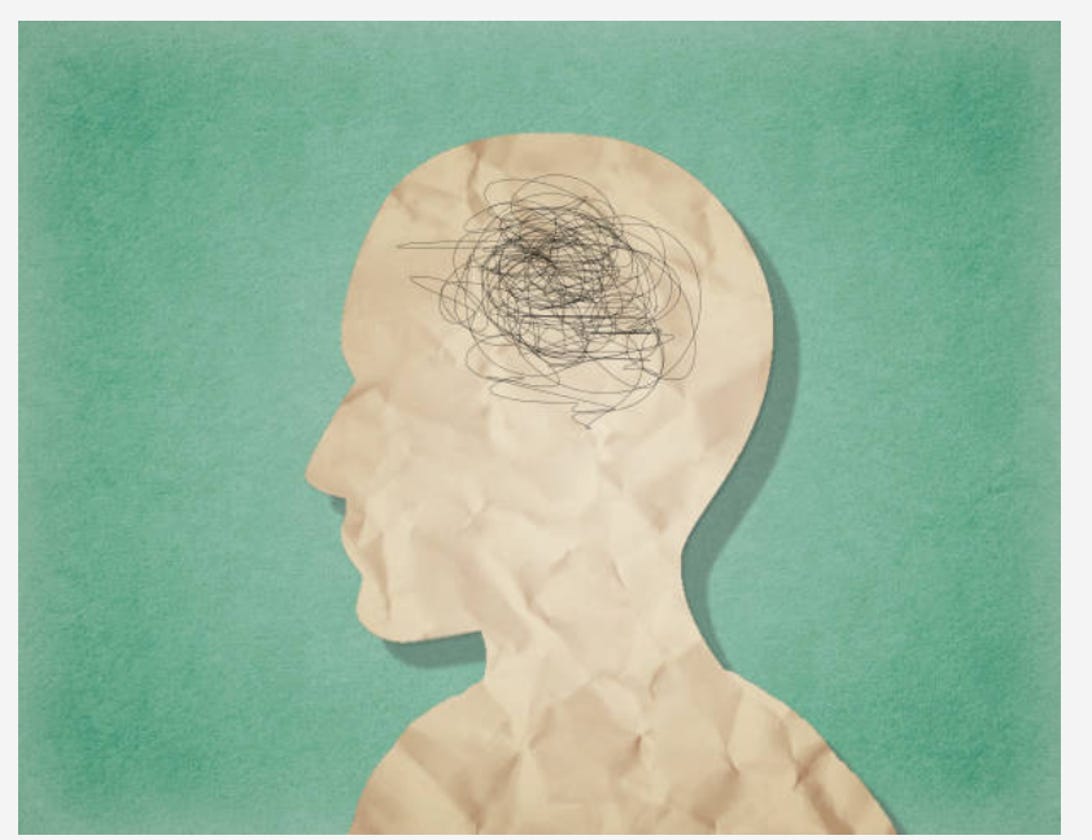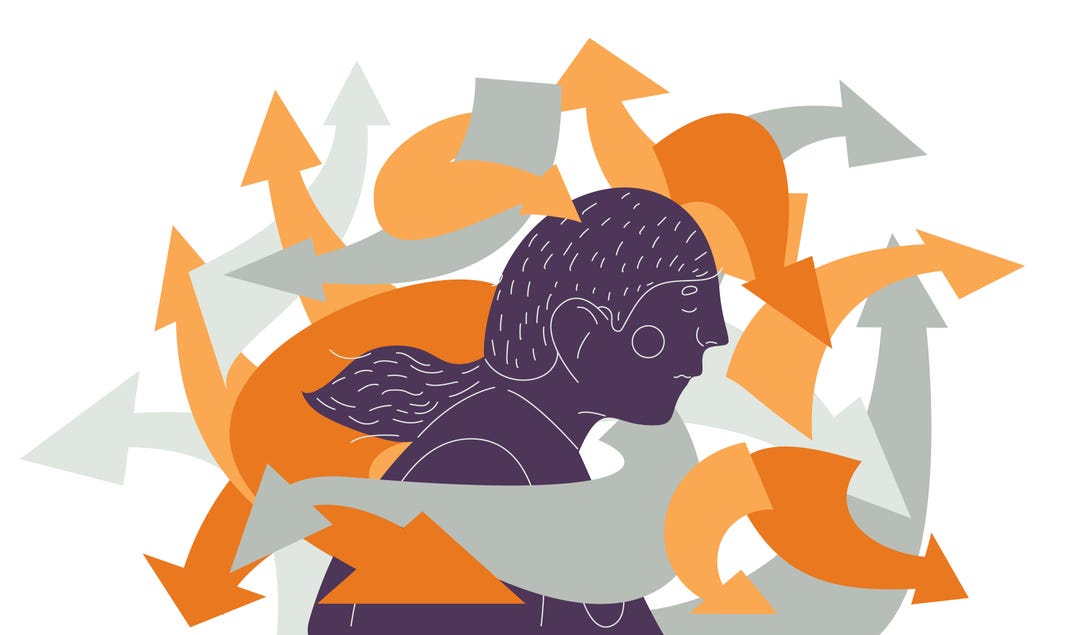
Has TikTok convinced you that you have ADHD? That you’ve probably had it since childhood, and only recently realized the source of your inattention or forgetfulness?
In one video on ADHD TikTok, a creator tells us what it’s like to get a diagnosis later in life.
“Imagine for a moment that you drive a crappy 1989 Chevette — stick shift,” she explains. “Then one day you come across an article about Teslas, and you go and test drive a Tesla. And it runs like butter.”
Not only have other people had better “tools” to fix their cars when they break down, she explains, they’ve been driving Teslas the entire time. Unfortunately getting that Tesla, aka an ADHD diagnosis and treatment, isn’t always easy. Lack of access to care, cost or even having a doctor who won’t refer you for testing can stand in the way.
In response to a growing awareness of mental health, and the increasing demand for telehealth and better access to care, ADHD diagnostic and treatment services are popping up online, promising users a fast diagnosis through a quick consultation with a professional (or even just an online assessment). This allows them to skip the lengthy process of finding a provider that can diagnose ADHD, which can land them on a waiting list for weeks or even months, and can also cost nothing short of an arm and a leg. But while online ADHD tests are filling an important gap, they also come with notable risks — like misdiagnosis.
The struggles of getting diagnosed
ADHD or attention deficit hyperactivity disorder is one of the most common mental health disorders, diagnosed most often in children, and in boys in particular. ADHD can present mostly as inattention or distractible type (someone struggles daily to focus or finish tasks, for example), a hyperactive or impulsive type (someone constantly feels restless and acts impulsively), or a combination of the two.
Because ADHD is such a common diagnosis for school children, and one that often comes with a prescription for a stimulant, some have worried that ADHD is being overdiagnosed in kids. On the other hand, however, efforts to chip away stigma surrounding mental health have found their way to social media, where users on TikTok and other platforms are sharing their stories and inspiring others to get help. This has prompted some adults to seek out treatment for ADHD that may have been overlooked when they were younger because they did well enough in school, they had enough support to function (or found the tools to get that old Chevette to work), or they never acted “hyperactive.”
The fact that girls and women with ADHD are less likely to appear hyperactive is one theory on why it’s often missed in people assigned as female at birth. According to Children and Adults with Attention-Deficit/Hyperactivity Disorder (CHADD), a nonprofit organization for ADHD, women oftentimes only recognize ADHD in themselves after their own children are diagnosed with the highly heritable condition.


“I think it’s really, really wonderful that mental health is being destigmatized to a point where people can feel comfortable talking about it, and comfortable sharing their experiences,” says Dr. Adrian Jacques Ambrose, the medical director of the Psychiatry Faculty Practice Organization at Columbia University. But getting an accurate diagnosis is key.
ADHD is a very specific neurodevelopmental condition with not-always-specific symptoms, Ambrose says. ADHD affects someone’s executive functioning part of their brain, including working memory, and it can cause a lot of “noise.” But the symptom of “not being able to focus” may not always mean ADHD, and concentration problems can be brought on by depression, for example. If someone’s given an ADHD diagnosis after a quick consultation, stimulant treatment may not work as well for them.
It’s also important to parse out the everyday distractions we all could check “yes” to on an ADHD survey from patterns that have negatively impacted your life, relationships and self-esteem, according to Dr. Sanam Hafeez, a neuropsychologist in New York City.
“Like everything else in medicine and definitely in mental health, the way we diagnose a disorder is by assessing the degree of interference or impediment it causes to your life,” Hafeez says.
Getting diagnosed with ADHD — fast
For a one-time diagnosis fee (prices vary, but most sites stay around the $150 to $200 mark), someone who suspects they have ADHD can get diagnosed through a quick consultation with a provider online through sites like Klarity and Done, and prescribed medication if appropriate or counseling, depending on the site.
Then, users can pay a smaller monthly fee to keep up their prescription for ADHD medication by checking in with a provider every month or so. Availability varies by state, as does insurance coverage: Done says the company doesn’t accept insurance for provider appointments, while Klarity says it isn’t in-network with any providers but will help you get reimbursed.
Another online testing site, ADHD Online, doesn’t require a video consultation with a provider. Rather, patients fill out a self-assessment which can be taken from your home, and it’s then reviewed by a doctorate-level psychologist who will tell you whether or not you have ADHD. The assessment is available in all 50 states, but treatment options vary by state. ADHD Online says it will be providing medication management “very soon.”
These services are much faster (and also potentially cheaper and easier to access) than going through the process of referral, diagnosis and testing the traditional way, so they serve as good options for people who do have ADHD. If left undiagnosed, ADHD can cascade into a myriad of other problems, including substance misuse, feelings of depression and anxiety, and problems with relationships and work.
Cerebral is another website that offers fast ADHD diagnosis and treatment, but also offers treatment for other mental health conditions, including depression or anxiety. Customers screen for the disorder they think they may have, and are able to set up a treatment plan that includes medication, therapy or both. While the monthly out-of-pocket fees might be higher (however you might be able to use your insurance), it’s a more comprehensive approach for someone who hasn’t been diagnosed with a mental health condition before. Prescriptions are available in all 50 states, but therapy depends on your state.
But having one telehealth consultation, or one evaluation, to diagnose someone with ADHD is “atypical” for a standard of care, Ambrose says. In a clinical diagnosis, providers will meet with patients to scrutinize their family history, observe their nonverbal cues and they are regulated for standard of care practices — which may not be fully formed in a brief one-off telemedicine visit.
Hafeez says that while she’s “skeptical” of the accuracy of diagnosing someone online (the concern of which we’ll get into below), she also acknowledges the increased demand for mental health treatment, and sees fast diagnosis sites as “preliminary” steps which can help set someone up for a deeper evaluation.
One assessment for ADHD, she says, is not enough. “We’re not taking into account all the comorbidities that can parade around as ADHD.”


When symptoms overlap, and a diagnosis becomes dangerous
People who are diagnosed with ADHD often have other mental health conditions or comorbidities. The chance of an anxiety disorder in an adult with ADHD, for example, may be as high as 50%, according to a 2017 report published in BMC Psychiatry. Mood disorders such as depression or bipolar disorder are also more common in children and adults with ADHD.
Hafeez says that she frequently sees patients who have been diagnosed with and are being treated for ADHD, but actually have another mental health condition. A missed diagnosis of bipolar disorder that is being treated with ADHD medication is particularly dangerous. (Cerebral says it’s able to treat bipolar disorder.)
“The stimulants that they use to treat ADHD can actually create a very intense mood response in people with a mood disorder,” Hafeez says, resulting in mania, depression or even suicide ideation. Generally speaking, people with bipolar disorder may be at a 10 to 30 times greater risk of death by suicide compared to the general public.
For this reason, Hafeez uses caution when treating patients seeking care for ADHD when she suspects they also may have bipolar disorder. While bipolar disorder is the most dangerous disorder to misdiagnose as ADHD, it’s one of the most common, behind anxiety, depression and learning disabilities.
As telemedicine continues to expand and more people become involved in their own mental health, hopefully the supply of accessible treatment and safe diagnoses can keep up.
“I want to be mindful of the fact people are suffering, people are hurting, and it’s not reasonable or fair to say the current wait time is three to six months, and you just have to wait three to six months to get that care,” Ambrose says. “I think it’s extremely unfortunate that as a health care system we are not able to meet that need.”
The information contained in this article is for educational and informational purposes only and is not intended as health or medical advice. Always consult a physician or other qualified health provider regarding any questions you may have about a medical condition or health objectives.


